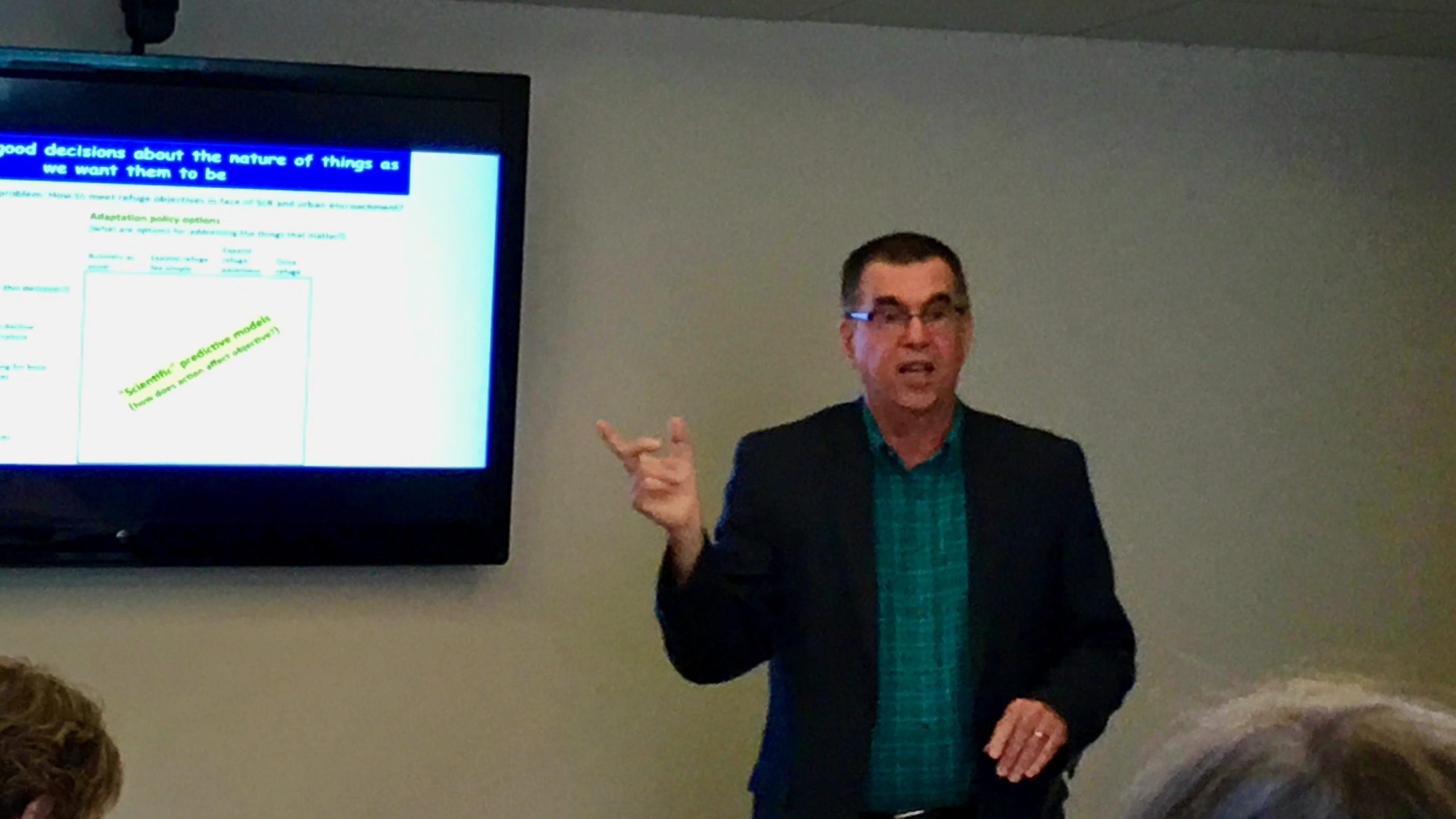Partners to Inform New Science Plan, SE CSC Embarks on Listening Tour



As part of developing a new strategic science plan this fall, 2017, the Southeast Climate Science Center (SE CSC) is visiting with state, federal and tribal wildlife management agencies to better understand the strategic challenges that managers face in adapting to climate and land use change. As part of this effort, SE CSC staff provide a seminar on the physical science behind climate change and climate projections, and discuss with participants the science needed to address climate impacts and adaptation for plants, fish, and wildlife. In addition, CSC staff and meeting participants identity and discuss climate-related management needs facing states, federal agencies and Tribes.
- Strengthen the science and management relationships between our center and your state agency/Tribe
- Make sure your state/Tribal emerging climate adaptation needs are identified and understood by us as we develop our strategic plan
- Provide your state agency/Tribe with overview of climate science and its impacts in this region, which many Southeast Association of Fish and Wildlife Agency members have requested
- Identify staff in your state agency/Tribe who might be interested in forming a regional community of practice around climate and the management of plants, wildlife, and ecosystems.
“We’re hearing from hunters and anglers that fish and wildlife are not following the same patterns of old and they are having to change their methods to be successful. They’re asking us to do something about it. But we need the ability to understand the climate changes that are occurring and to be able to explain this (these changes) to our citizens.”– Bill Reeves, Tennessee Wildlife Resources Agency
Itinerary of Listening Sessions:
Southeast Tribes: March 16, Fort Lauderdale, Seminole Nation
Florida: April 12, Tallahassee
Tennessee: April 25, Nashville
Louisiana: May 23, Baton Rouge
Arkansas: July 27, Little Rock
Puerto Rico: August 15, San Juan
U.S. Virgin Islands: August 17-19 (tentative)
Have input for our strategic science plan? Take our Climate and Land Use Change science priorities partner survey here.
Key question results from our survey:
•How will climate affect the resources I manage?
•How will climate change in the places I manage?
•How will climate affect plant communities important to Tribes?
Where should the SE CSC focus their research efforts in the next few years? Top concerns we have heard so far include:
•Impacts to coupled human and natural systems
•Loss of habitat and connectivity
•Reaching trigger points and thresholds for habitats of concern
•Sea level rise impacts
•Providing climate related support services to wildlife management agencies